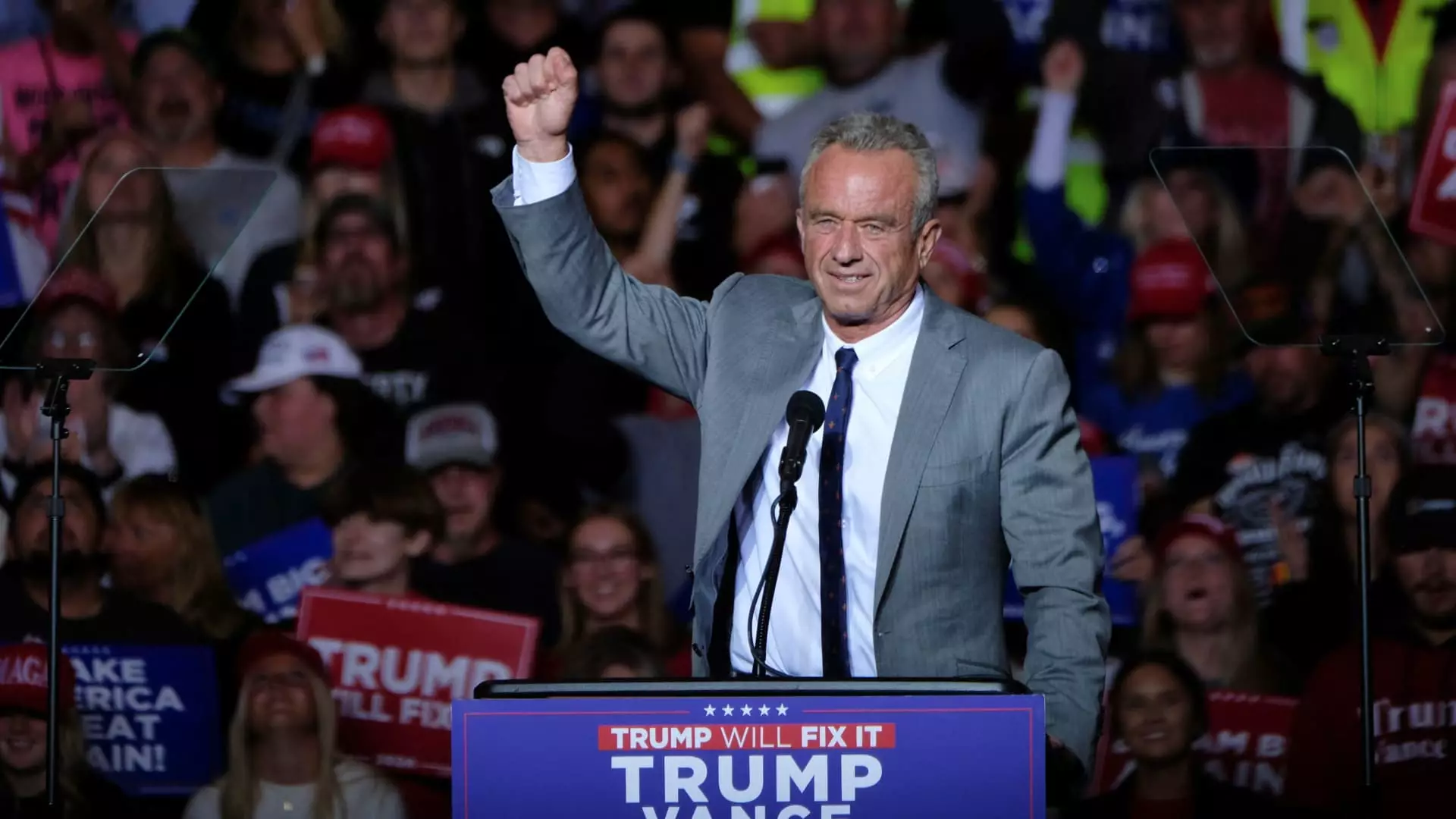The dynamics of the health care market are undergoing a notable shift, particularly within the dental care industry, in the wake of high-profile political appointments. Investors are now keeping a close watch on stocks related to dental hygiene products, especially Henry Schein, amidst the speculation surrounding Robert F. Kennedy Jr.’s potential role as Health and Human Services Secretary under President-elect Donald Trump. This analysis delves into the implications of Kennedy’s controversial stance on fluoride in public drinking water and its potential economic ripple effects.
On a recent trading day, Henry Schein’s stock surged by nearly 5%, marking the company’s most significant increase since July. This uptick is primarily linked to investors’ anticipation that Kennedy might advocate for the removal of fluoride from U.S. water systems, a measure touted to significantly increase dental visits as people seek alternative means to combat cavities. Fellow dental corporations, such as Dentsply Sirona and Envista, also experienced modest gains, suggesting a general optimism about the dental care market’s potential expansion under this proposed shift in public health policy.
Investors are understandably intrigued; a move to eliminate fluoride could lead to greater dependence on dental care services, effectively translating into increased revenue for companies providing dental products. This has the potential to rejuvenate a sector that has faced challenges in recent times due to broader economic pressures and cautious consumer spending habits.
Fluoride has long played a crucial role in preventive dental care, with decades of research confirming its efficacy in reducing cavities. However, the mineral has recently found itself at the epicenter of a contentious national debate, leading to the removal of fluoridation programs in several communities. Critics of fluoridation argue about potential health risks, while supporters cite a significant decline in dental health issues due to its use.
Kennedy’s public statements have fueled speculation and concern over these controversies. In a notable post on social media, he indicated that under a Trump administration, fluoride could be removed from drinking water entirely, a policy shift that would require Senate approval—complicating the pathway to actual implementation. Nonetheless, analysts like Don Bilson of Gordon Haskett have suggested that Kennedy’s influence could lead to an increase in tooth decay, subsequently prompting more consumers to seek dental care.
Despite the positive outlook for dental stocks, the broader health care sector appears to be grappling with uncertainty. The Health Care Select Sector SPDR Fund has slipped by approximately 3.5% this month alone. This downturn coincides with the market’s response to Kennedy’s nomination, which has invoked fears of regulatory changes that could negatively impact a myriad of health-focused businesses, including pharmaceuticals.
While dental care products may stand out as a potential safe harbor within the turbulent health sector, the long-term implications of Kennedy’s policies are difficult to predict. Regulatory revisions tend to unfold over years, and the weight of harmful effects on public health from potentially altering fluoride regulations won’t be seen overnight. As a result, investors may experience a rollercoaster of volatility as market reactions ebb and flow with political developments.
For investors, understanding the nuanced landscape of health regulations is critical. While a potential boom in dental visits could benefit companies like Henry Schein, the underlying risks associated with changes in public health policy should not be overlooked. The interconnections between dental products, public health measures, and consumer behavior are complex, and the decision-makers involved can shift rapidly.
As the health sector reevaluates its positioning in light of these developments, investors will do well to remain adept at monitoring not only the political landscape but also the responses of the regulatory bodies traditionally involved in water safety, such as the Environmental Protection Agency. Such vigilance will aid in making informed decisions amidst an evolving and increasingly politicized health care framework.
While the prospect of heightened demand for dental services due to potential policy changes under Kennedy’s nomination offers a tantalizing investment opportunity, caution is advised as broader health care market dynamics remain fragile and uncertain.

